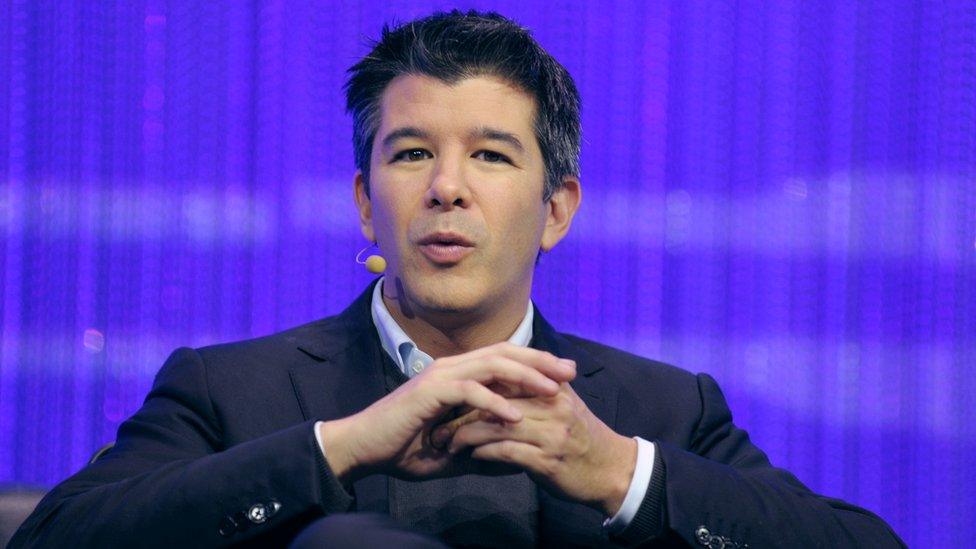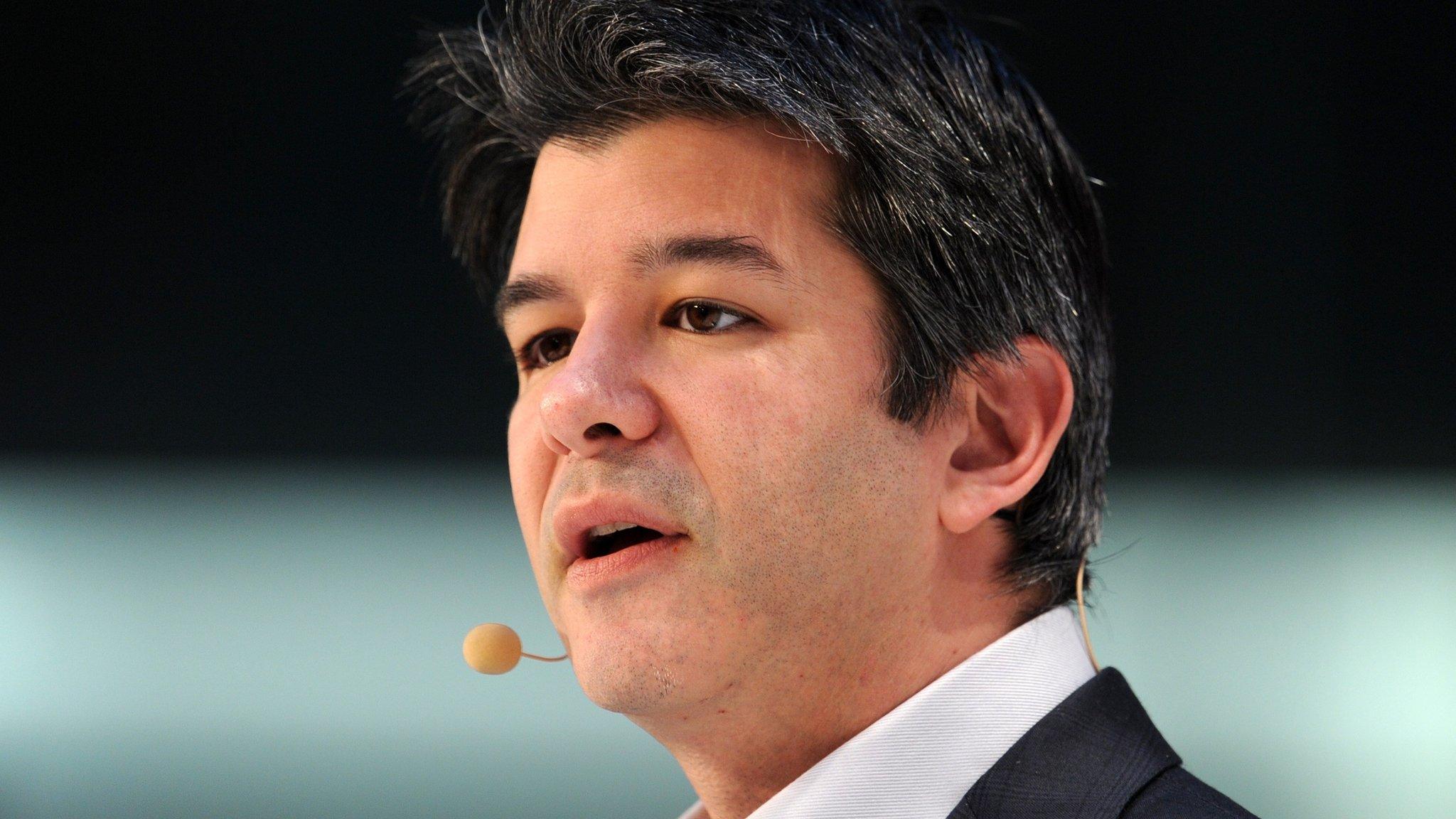Uber founder Travis Kalanick resigns after months of turmoil
- Published

Uber boss Travis Kalanick has resigned as chief executive after pressure from shareholders.
His resignation comes after a review of practices at the firm and scandals including complaints of sexual harassment.
Last week he said he was taking an indefinite leave of absence following the sudden death of his mother in a boating accident.
Mr Kalanick will remain on the board of the ride-hailing firm.
Five major Uber investors demanded Mr Kalanick's immediate resignation as chief executive, the New York Times said, external.
Mr Kalanick reportedly said: "I love Uber more than anything in the world and at this difficult moment in my personal life I have accepted the investors request to step aside so that Uber can go back to building rather than be distracted with another fight."
Uber's board said in a statement: "Travis has always put Uber first. This is a bold decision and a sign of his devotion and love for Uber.
"By stepping away, he's taking the time to heal from his personal tragedy while giving the company room to fully embrace this new chapter in Uber's history. We look forward to continuing to serve with him on the board."

Analysis: Dave Lee, BBC North America technology reporter, San Francisco
Surely the most dramatic fall from grace the start-up world has ever seen, a scalp so big it will have chief executives across this city sitting bolt upright, and thinking: "If Travis can get booted out of Uber… no-one is safe."
What started out as a PR inconvenience has left the company without, to name just a few, a chief executive officer, chief operating officer, chief technology officer and chief financial officer. Uber is in tatters, engulfed by its own aggression.
Mr Kalanick embodied his company's prevailing attitude: success at all costs. It saw Uber dominate the ride-sharing world, his chutzpah enabling the company to attract investment so effectively that last year Uber alone raised more money than the entire UK start-up scene.
But in doing so he didn't play fair. He created a company that deceived local regulators, neglected the well-being of employees, wound-up drivers, troubled investors, obtained a rape victim's medical records and allegedly stole trade secrets from a rival.
All this time Uber's investors will have been weighing things up. What's more risky to their investment - removing the man who made Uber what it is, or keeping him on? For the first time it's become the latter - and Mr Kalanick is out the door.

Dan Primack, business editor of the Axios news service, was one of the first to report the investor demands for Mr Kalanick to go.
Mr Primack said a group of investors, but particularly Bill Gurley of venture capitalist firm Benchmark, had put pressure on Mr Kalanick to resign.
"It's important to note: Travis controlled the board in terms of votes, so really, it was a vey big uphill climb for [Mr] Gurley and the other investors to get this done," Mr Primack said.
Uber's future prospects were now "pretty bright", Mr Primack added.
The firm has been searching for a chief operating officer, but now can seek out Fortune 500 chief executives to take over the top spot, he said.
Scandals
The ride-hailing company has had a series of recent controversies, including the departure of other high-level executives.
Eric Alexander, the former head of Uber's Asia-Pacific business, left after a report that he had obtained the medical records of a woman who was raped by an Uber driver in 2014.
Mr Alexander reportedly shared them with Mr Kalanick, senior vice-president Emil Michael and others.
Mr Alexander was fired earlier this month, and Mr Michael later left Uber.
Board member David Bonderman made a sexist remark at a meeting about workplace practice recommendations last week and then resigned as a director.
In February Uber said it was investigating "abhorrent" sexual harassment claims made by former Uber engineer Susan Fowler.
This month Uber said it had fired more than 20 staff and had taken action against others following a review of more than 200 HR complaints that included harassment and bullying.
There has also been a lawsuit from Google's parent company, Alphabet, over alleged theft of trade secrets related to driverless cars.
- Published21 June 2017

- Published20 June 2017
- Published14 June 2017
